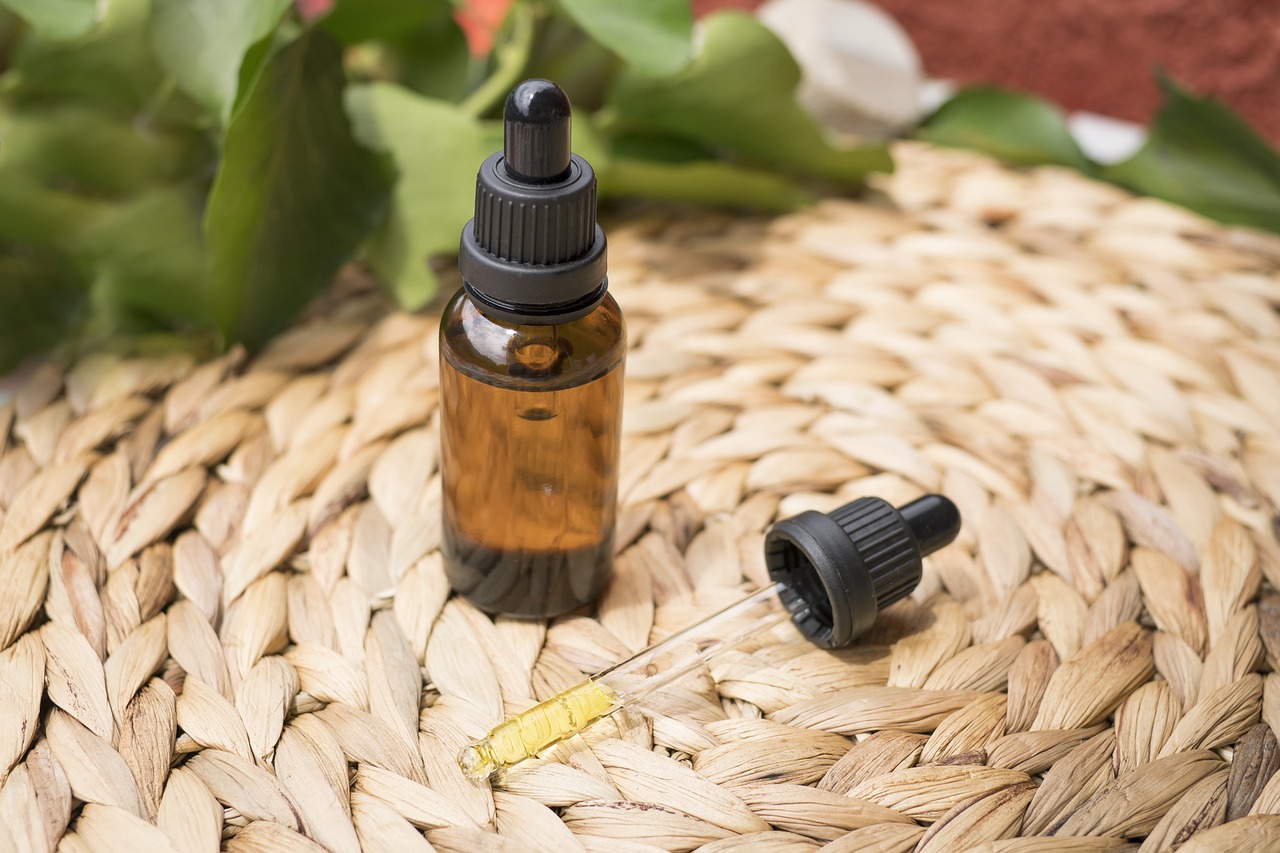In recent years, the spotlight on CBD (cannabidiol) within medical marijuana has intensified, with researchers and medical professionals delving deeper into its potential therapeutic benefits. CBD, one of the many cannabinoids found in the cannabis plant, has been garnering attention for its promising effects on various health conditions. We’re exploring the world of CBD, uncovering the benefits of CBD in medical marijuana, its impact on health, its potential as a treatment option, and what you need to know about its use in medical marijuana.
Understanding CBD and Its Benefits in Medical Marijuana
CBD has emerged as a key player in the realm of medical marijuana due to its potential health benefits. Unlike its counterpart THC (tetrahydrocannabinol), CBD doesn’t produce psychoactive effects, making it an attractive option for those seeking therapeutic relief without the “high” associated with traditional marijuana use.
Cannabidiol’s Impact on Health
Research into the health impacts of CBD has revealed a wide array of potential benefits. From its anti-inflammatory properties to its ability to alleviate pain, CBD shows promise in addressing various health conditions. Studies have suggested that CBD may help manage chronic pain, reduce anxiety and depression, alleviate symptoms of epilepsy, and even aid in cancer treatment.
Exploring CBD for Medical Use
As interest in CBD grows, researchers are continuously exploring its potential applications in the medical field. From oils and tinctures to capsules and topical creams, CBD is available in various forms to suit individual preferences and needs. Furthermore, ongoing clinical trials are investigating CBD’s efficacy in treating conditions such as multiple sclerosis, Parkinson’s disease, and substance abuse disorders.
CBD: A Promising Treatment Option
One of the most compelling aspects of CBD is its versatility as a treatment option. Whether used alone or in combination with other cannabinoids, CBD has shown promise in addressing a wide range of health concerns. Its non-addictive nature and minimal side effects make it an attractive alternative to conventional pharmaceuticals for many individuals seeking natural remedies.
How CBD Works in the Body
CBD interacts with the body’s endocannabinoid system (ECS), a complex network of neurotransmitters and receptors involved in regulating various physiological processes.
When CBD is consumed, it interacts primarily with two types of receptors within the ECS: CB1 and CB2 receptors. CB1 receptors are predominantly found in the central nervous system, while CB2 receptors are primarily located in peripheral tissues, including immune cells.
By modulating the activity of these receptors and influencing neurotransmitter release, CBD can exert its effects on pain perception, inflammation, mood, and other bodily functions, ultimately promoting balance and homeostasis within the body.
Medical Marijuana and CBD: What You Need to Know
When discussing CBD, it’s essential to address its relationship with medical marijuana. While CBD can be derived from both hemp and marijuana plants, medical marijuana typically refers to cannabis strains containing higher levels of THC. However, CBD-dominant strains or products with low THC content are often used for medicinal purposes, offering therapeutic benefits without the psychoactive effects associated with recreational marijuana use.

Image by Erin Stone from Pixabay
Unlocking CBD’s Therapeutic Potential
The therapeutic potential of CBD extends beyond symptom management, with researchers exploring its role in disease prevention and overall wellness. From its antioxidant properties to its neuroprotective effects, CBD holds promise in promoting general health and longevity. As research progresses, we may uncover even more ways in which CBD can enhance our well-being and quality of life.
CBD Oil for Medical Conditions
CBD oil has gained popularity as a versatile and accessible option for managing various medical conditions. Extracted from the cannabis plant and diluted with a carrier oil, CBD oil offers a convenient means of administration, allowing for precise dosing and easy incorporation into daily routines.
Its therapeutic potential spans a wide range of health issues, including chronic pain, anxiety disorders, inflammatory conditions, and neurological disorders like epilepsy. Additionally, the diverse forms of CBD oil, such as tinctures, capsules, and topical creams, provide flexibility in addressing specific symptoms and preferences, making it a valuable tool in the arsenal of natural remedies for promoting overall health and well-being.
Understanding CBD’s Role in Pain Management
Chronic pain is a widespread medical condition that affects millions of people worldwide. Traditional pain management approaches often involve the use of opioids, which can lead to dependence and adverse side effects. CBD offers a promising alternative for pain relief, with studies suggesting its efficacy in mitigating both nociceptive and neuropathic pain. By modulating pain perception and reducing inflammation, CBD may provide much-needed relief for individuals suffering from chronic pain conditions.
CBD and Anxiety Relief
CBD’s potential for anxiety relief has garnered significant attention from researchers and individuals seeking natural alternatives to conventional treatments. Anxiety disorders, including generalized anxiety disorder (GAD), social anxiety disorder (SAD), and post-traumatic stress disorder (PTSD), are prevalent mental health conditions that can significantly impact quality of life. CBD interacts with serotonin receptors in the brain, modulating neurotransmitter activity associated with mood regulation and stress responses.
By enhancing serotonin signaling, CBD may help alleviate feelings of anxiety and promote a sense of calmness and relaxation. Research studies have shown promising results, with participants reporting reduced anxiety levels following CBD consumption. Furthermore, CBD’s non-addictive nature and minimal side effects make it an appealing option for long-term anxiety management, particularly for individuals who may experience adverse effects from traditional medications.
As interest in CBD’s anxiolytic properties continues to grow, ongoing research aims to elucidate the specific mechanisms underlying its therapeutic effects and identify optimal dosing regimens for different anxiety disorders.
CBD holds promise as a natural and effective remedy for mitigating anxiety symptoms and improving overall mental well-being.
Research on CBD’s Effectiveness
Despite the growing interest in CBD’s therapeutic potential, more research is needed to fully understand its efficacy and safety profile. While preliminary studies have shown promising results, larger-scale clinical trials are necessary to validate these findings and establish standardized treatment protocols. Additionally, ongoing research will help elucidate the long-term effects of CBD use and identify any potential risks associated with prolonged exposure.
Using CBD for Epilepsy Treatment
One of the most well-established uses of CBD in medicine is for the treatment of epilepsy, particularly in children with refractory seizure disorders. Epidiolex, a CBD-based medication approved by the FDA, has demonstrated significant efficacy in reducing seizure frequency and improving overall quality of life in patients with conditions such as Dravet syndrome and Lennox-Gastaut syndrome. This landmark approval underscores the therapeutic potential of CBD in managing treatment-resistant epilepsy and has paved the way for further exploration of its anticonvulsant properties.
Cannabidiol and Its Anti-inflammatory Properties
Inflammation is a common underlying factor in many chronic diseases, including arthritis, inflammatory bowel disease, and cardiovascular disorders. CBD’s anti-inflammatory properties have attracted attention from researchers and healthcare professionals alike, as it offers a natural approach to reducing inflammation and alleviating associated symptoms. By modulating immune responses and inhibiting inflammatory mediators, CBD may help mitigate tissue damage and improve overall health outcomes in individuals with inflammatory conditions.
CBD for Insomnia: Does It Work?
Sleep disturbances are prevalent among individuals of all ages and can have a profound impact on overall health and well-being. While conventional sleep aids may provide temporary relief, they often come with unwanted side effects and the risk of dependency. CBD has emerged as a potential solution for insomnia and other sleep disorders, with research suggesting its ability to improve sleep quality and duration. By promoting relaxation and reducing anxiety, CBD may help individuals achieve restful sleep without the need for pharmaceutical interventions.

Image by Erin Stone from Pixabay
Exploring the Science Behind CBD
The scientific exploration of CBD’s mechanisms of action and therapeutic potential is a rapidly evolving field. Researchers are continually uncovering new insights into how CBD interacts with the body and its potential applications in various medical conditions. From molecular pharmacology studies to clinical trials, the scientific community is working tirelessly to expand our understanding of CBD and harness its full therapeutic potential.
CBD and Its Potential Side Effects
While CBD is generally well-tolerated, it’s essential to be aware of potential side effects, particularly when using higher doses or in combination with other medications. Common side effects of CBD may include drowsiness, dry mouth, diarrhea, and changes in appetite or weight.
CBD may also interact with certain medications, potentially affecting their metabolism and efficacy. It’s crucial to consult with a healthcare professional before incorporating CBD into your treatment regimen, especially if you’re taking prescription medications or have underlying health conditions.
Monitoring for any adverse reactions and adjusting dosage or treatment as necessary can help mitigate the risk of experiencing unwanted side effects.
Legal Status of CBD in Medical Marijuana
The legal status of CBD in medical marijuana varies widely across different jurisdictions and is subject to ongoing regulatory changes. In some regions, medical marijuana programs permit the use of CBD products for therapeutic purposes, provided they comply with specific regulations regarding cultivation, distribution, and patient access.
In other areas, the legal landscape surrounding CBD remains complex, with discrepancies between state and federal laws creating uncertainty for patients, healthcare providers, and businesses operating in the cannabis industry.
It’s essential for individuals interested in using CBD for medical purposes to stay informed about local regulations and consult legal experts for guidance on compliance and access to safe, legal CBD products.
CBD and Cancer Treatment: What Studies Show
Studies exploring the potential of CBD in cancer treatment have yielded promising findings, although more research is needed to fully understand its efficacy and safety profile.
Preclinical studies have demonstrated that CBD may possess anticancer properties, including inhibiting tumor growth, inducing apoptosis (cell death) in cancer cells, and suppressing angiogenesis (the formation of new blood vessels to support tumor growth).
CBD also shows potential in mitigating cancer-related symptoms such as pain, nausea, and loss of appetite, which can significantly impact quality of life for cancer patients undergoing treatment. Clinical trials are underway to further investigate CBD’s role in cancer therapy and symptom management, offering hope for novel therapeutic approaches in oncology.
CBD Dosage Guidelines for Medical Use
Determining the appropriate dosage of CBD for medical use is crucial to ensure optimal efficacy and safety. Factors such as body weight, metabolism, the severity of the condition being treated, and individual sensitivity to cannabinoids can all influence dosage requirements.
It’s recommended to start with a low dose and gradually increase it until the desired effects are achieved while monitoring for any adverse reactions. Consulting with a healthcare professional experienced in cannabinoid therapy can provide personalized guidance and help establish an appropriate dosage regimen tailored to individual needs and treatment goals.
Keeping a detailed journal to track CBD dosage and its effects can aid in finding the optimal therapeutic dose.
Patient Testimonials on CBD Efficacy
Perhaps one of the most compelling aspects of CBD’s therapeutic potential is the countless testimonials from individuals who have experienced firsthand its benefits. From chronic pain sufferers finding relief to epilepsy patients achieving seizure control, anecdotal evidence abounds regarding the positive impact of CBD on health and well-being. While anecdotal testimonials should be interpreted with caution and not substitute for scientific evidence, they offer valuable insights into the real-world experiences of those using CBD for medical purposes.
***
CBD holds immense promise as a therapeutic agent within the realm of medical marijuana. From its potential to alleviate pain and inflammation to its efficacy in managing anxiety, epilepsy, and other health conditions, CBD offers a natural alternative for those seeking relief without the unwanted side effects of traditional pharmaceuticals.
As research continues to unravel the mysteries of CBD’s mechanisms of action and its role in promoting health and wellness, it’s essential to approach its use with caution, diligence, and an open mind. By unlocking the full potential of CBD, we may unlock new possibilities for improving human health and quality of life.
Learn more about medical marijuana state regulations on our blog!
Featured image by Julia Teichmann from Pixabay.
